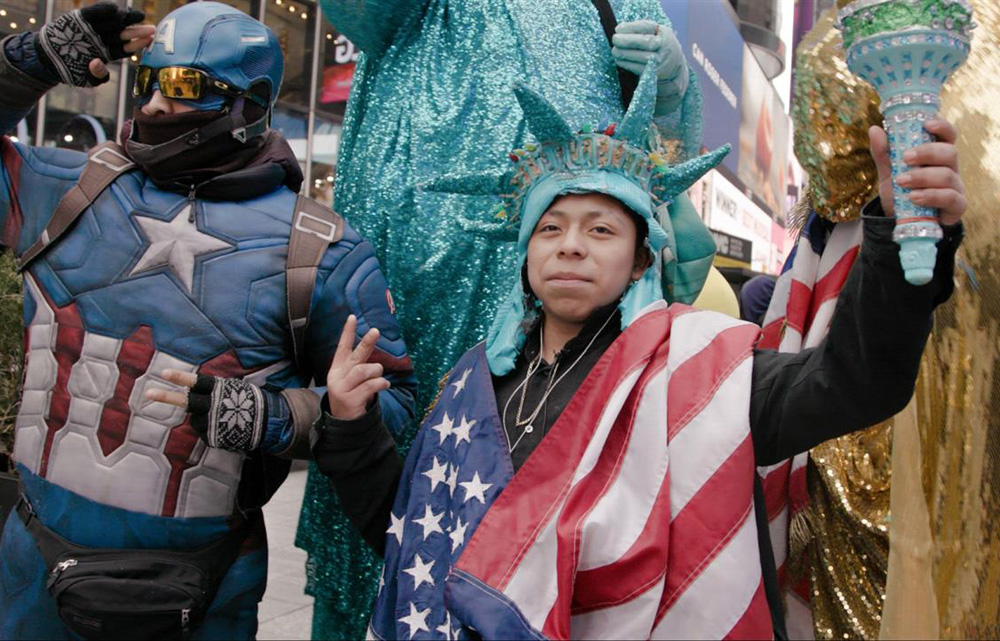Towards the end of “Five Years North,” you understand why co-directors Zach Ingrasci and Chris Temple decided to peek in the life of ICE agent named Judy when they spent ten years following the journey of Luis, a 15-year-old from Guatemala to New York, scraping by in order to send money back home to Pena Blanca where his family continues to float just above the poverty line. For much of the film, Judy ironically feels like an intruder, wanly defending her work breaking into people’s homes as she starts making apprehensions of legal immigrants and is questioned by her parents, both immigrants themselves, about continuing on the job. But it’s steady employment, something that’s elusive anywhere in the world these days and besides, it keeps her close geographically to both her parents and her son when she can afford to live in New York, only a couple years away from being set with retirement.
While plenty of other films have shown how families are pulled apart by the fallible immigration system, Ingrasci and Temple take a moment to consider how it’s kept Judy’s together, a privilege that simply isn’t available to so many around the world who send their young across the border to pursue a better life. “Five Years North” clearly leans towards Luis’ story in both sentiment and attention, but having Judy as a counterpoint ends up revealing the rights that Americans take for granted simply by virtue of where they’re born. Even without the debt of he’s amassed from being smuggled across the border, Luis is carrying plenty on his shoulders at such a young age when the film starts, able to call his family, who crowd around a phone when he has time to get in touch, but who he is unlikely to see face-to-face anytime soon. He has company in the apartment he shares with fellow immigrants, a kind of waystation with plywood walls and cast iron bunk beds, but given his age, he’s in a particularly precarious spot, unable to get a full-time job when he sees that as his responsibility to his family and attending a school where he barely understands the language.
When Luis and Judy’s stories are intercut with one another, you expect there to be parallels or offer context for one another – they share the same neighborhood, but “Five Years North” doesn’t quite coalesce in that way, instead revealing the lack of nuance in immigration law and the generally arbitrary nature of borders, which becomes more grotesque in their application when those in power take a harder line. Neither Judy or Luis can be happy about what they do to get by, with the latter finding his way into the low-wage restaurant business on top of the classes he’s required to take and the ICE agent overwhelmed with more and more cases to process when the Trump Administration seeks to go beyond removing immigrants with a criminal record. Ingrasci and Temple cover a lot of ground over the two years the film unfolds, both in terms of experience and geography as the two venture back and forth to Pena Blanca to see how Luis’ family is holding up, and while it should be noted that they have a freedom of movement that Luis does not, the filmmakers admirably put their agency in the service of a perspective that far too few have on either side of the Rio Grande.
“Five Years North” will open in 2021.




